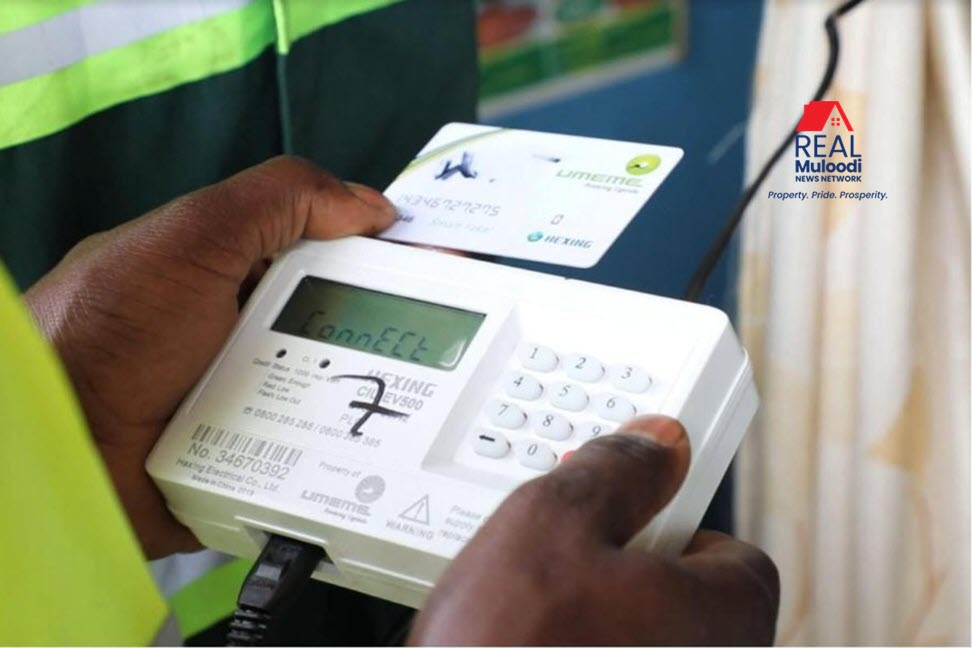UGANDA, Kampala | Real Muloodi News | There are thousands of commercial and residential-rented buildings in Uganda. Ugandan Law requires the landlords of these properties to remit income tax on the rental income they receive.
Over the years, the URA tax body relied on ‘foot soldiers’ visiting commercial and residential buildings to establish the non-compliant landlords, but the approach has been ineffective. Only 8% of rental income tax is collected in Uganda, leaving 92% of rental income untaxed, which denies government close to Shs710b annually.
However, this is about to change. The Uganda Revenue Authority (URA) has announced they will use Yaka metres to track landlords, thanks to the Electronic Fiscal Receipting and Invoicing Solution (EFRIS).
The EFRIS system records business transactions and sends the information to the URA in real-time. The EFRIS system aims to address challenges faced by the tax administration relating to business transactions and issuing receipts.
Ian Rumanyika, the acting assistant commissioner of public and corporate affairs at URA, confirmed that URA will use Yaka metres to track landlords.
Rumanyika said with EFRIS, URA will identify individuals and companies whose names were used to register for the Yaka meter but are not remitting funds. He said the move should not concern tax-compliant taxpayers, adding that “it should capture the non-compliant.”
”We had challenges with data sharing. Property owners have their names registered for Yaka, but just a handful were paying rental income tax,” he said.
In the recently passed Income Tax Amendment Bill, the government implemented a blanket 30% rental income tax rate for individuals and companies, which came into effect on 1st July 2021.
The tax is levied on the total amount of rent derived by a person for the year of income from the lease of either land or buildings, minus deductions of expenses incurred regarding the property.
Landlords are eligible to deduct 75% as allowable expenses and losses. After factoring in the deductions, landlords are left with a 7.5% effective tax rate under this new legislation.
How URA will use Yaka Metres through the EFRIS System
According to Ian Rumanyika, EFRIS was gazetted and made mandatory for all VAT taxpayers, including Umeme. Water invoices issued by the National Water and Sewerage Corporation (NWSC) are also issued through EFRIS.
Rumanyika explains that once you pay bills for either water or electricity, you automatically get an invoice on your mobile phone through an SMS or via email.
On URA’s side, the EFRIS will show who has paid the bill and their location. The system would then identify an individual or company that paid, but has never paid rental income tax.
Where one owns several buildings but does not declare them all, the invoicing system would highlight the names of such landlords. URA will then send their tax enforcement team to the specific locations identified by the system.
“With EFRIS, we will identify those who remit utility bills. Even if you registered all your rental units on just one Yaka metre and you are paying about USh 500000 a month in utilities, we will identify you. Big entities can only pay such an amount, and we will come and double-check,” Rumanyika said.
Rumanyika said the tax body could determine the year any building was built depending on when they installed the utility meters, because Yaka meter numbers are issued in sequence. The tax body will then handle landlords have not been remitting taxes.
Through EFRIS, Rumanyika said, refund claims using e-receipts shall be fast-tracked since the information shall be readily available in the system.
In addition, Rumanyika said the system would enable URA to avail taxpayers with pre-filled tax returns to minimize delays and costs while filing tax returns.
”Pre Filled tax returns will help taxpayers avoid penalties for late or non-filling,” the URA portal reads.
Mr Agaba, the managing director of Averts Housing Limited, supported the URA move, saying that: ”compliance to pay taxes is statutory, but the tax system should be fair and help the sector develop.”
Umeme, on Monday 26th July, released a statement saying that in 2020, URA issued a directive to all businesses in Uganda to implement the ERFIS effective 1st January 2021, of which Umeme complied.
Umeme Statement
”For those with active email addresses linked to their Umeme accounts, you may receive fiscalised invoices from URA, either on receipt of your Umeme bill for postpaid customers, or on making a payment for your Yaka token for prepaid customers. For those who have received a fiscalised invoice from URA by email, we advise you to use it to file your monthly VAT returns if applicable. Otherwise, maintain the document for our records,” The Umeme statement reads.
Ongoing Collaboration with Other Ministries and Agencies
Separately, URA has already been working closely with several Government Ministries, Departments and Agencies (MDAs) to share data, to implement the Rental Tax Compliance System (rTCS). rTCS aggregates data from various government and other sources to match properties to their owners to identify individuals and organisations that are underpaying rental income tax.
MDAs taking part in the collaboration include:
- Ministry of Lands, Housing and Urban Development,
- Kampala Capital City Authority (KCCA),
- National Identification and Registration Authority (NIRA),
- National Water and Sewerage Corporation (NWSC),
- National Information Technology Authority (NITA-U),
- Uganda Communications Commission (UCC), and
- Ministry of Local Government and Local Councils
The rTCS technology solution is by RippleNami Uganda. The project is under way, with the first results expected at the end-of-year 2021.
READ MORE LIKE THIS:
Understanding the Current and Proposed Property Tax Regime in Uganda



